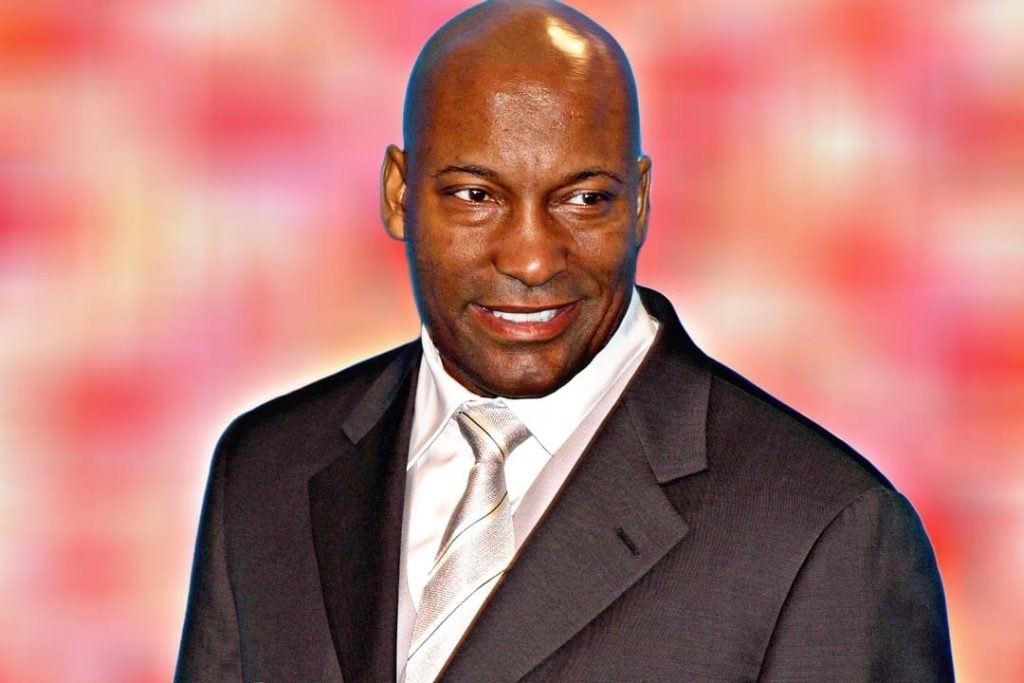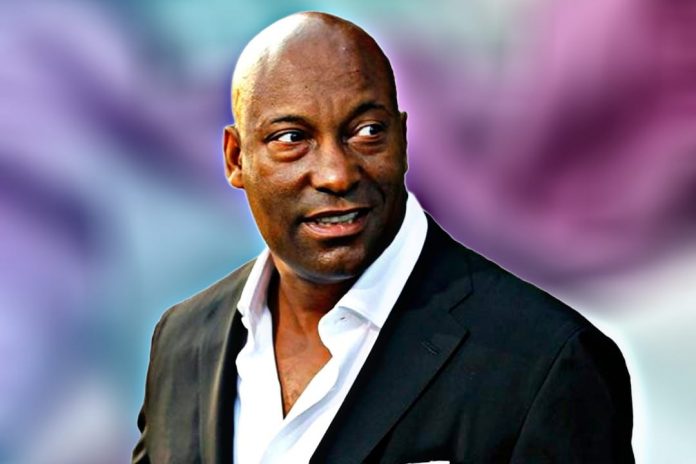John Singleton, a name that resonates with cinematic history, is known as one of the most influential filmmakers in Hollywood, a director who redefined how African-American stories were told on the big screen. His career was not just about making films; it was about giving a voice to underrepresented communities, exploring themes of identity, race, and social justice, and using the power of film as a tool for change. Singleton’s work was as groundbreaking as it was raw, offering a lens through which audiences could see, understand, and empathize with the lived experiences of marginalized people, particularly within the Black community.
From his debut film Boyz n the Hood to his later works like Poetic Justice and Higher Learning, Singleton’s impact on both the art of filmmaking and social discourse remains profound. In this article, we’ll explore John Singleton’s life, his groundbreaking career, his unique style, and his enduring legacy in the film industry.
Early Life and Formative Years

John Daniel Singleton was born on January 6, 1968, in Los Angeles, California. Raised in the South Central neighborhood of LA, Singleton grew up in a city where gang violence, poverty, and systemic racism were constant realities. These experiences would shape much of his storytelling, and the harshness of life in South Central would become a defining element of his work.
Singleton’s family background was rooted in education and activism. His mother, Shelia Ward, was a pharmaceutical company sales representative, and his father, a medical professional, ensured that Singleton had access to both education and a worldview that emphasized the importance of hard work and social engagement. Singleton attended the University of Southern California’s (USC) School of Cinematic Arts, where his passion for film blossomed. USC, known for producing some of Hollywood’s finest filmmakers, provided Singleton with both the technical skills and the creative freedom to pursue his vision.
It was during his time at USC that Singleton began to develop the ideas and storytelling techniques that would define his career. In 1991, he graduated with a degree in film and television production, but what really set him apart was his senior thesis project, a short film called Last Summer. This film helped him land an agent and opened the door for his first major project.
The Groundbreaking Success of Boyz n the Hood
In 1991, at the age of 23, John Singleton wrote and directed Boyz n the Hood, his first feature film. The movie, which focuses on the lives of three young men growing up in South Central Los Angeles, was both a critical and commercial success. It was a poignant and raw look at the challenges young Black men face in urban America, highlighting themes such as gang violence, systemic racism, and the struggle for survival in an environment where opportunity was scarce.
Boyz n the Hood was notable not only for its portrayal of the realities of life in inner-city neighborhoods but also for its nuanced approach to the lives of Black youth. Singleton’s characters weren’t mere stereotypes; they were fully realized human beings grappling with the consequences of their environment, their decisions, and their relationships. The film starred Cuba Gooding Jr., Laurence Fishburne, Ice Cube, and Angela Bassett, and was lauded for its performances, direction, and ability to spark dialogue around race relations and social issues.
The film received critical acclaim, with many praising Singleton for his ability to capture the complexities of Black life in America. Boyz n the Hood was also a commercial success, grossing over $57 million against a budget of just $6 million. Singleton’s achievement was made even more remarkable by the fact that he was one of the youngest directors ever nominated for an Academy Award for Best Director. He was only 24 years old when he received this honor, and his nomination made him the first African-American director to be nominated for the award.
Continuing the Conversation: Poetic Justice and Higher Learning

Following the success of Boyz n the Hood, Singleton continued to create films that explored themes of race, identity, and societal challenges. In 1993, he released Poetic Justice, a film that combined romantic drama with social commentary. Starring Janet Jackson and Tupac Shakur, Poetic Justice focused on the story of a young woman, played by Jackson, who struggles with grief and finds solace in poetry and an unlikely romance. The film was notable for bringing together two major cultural figures—Jackson and Shakur—while continuing John Singleton tradition of addressing African-American experiences in complex, sensitive ways.
John Singleton next film, Higher Learning (1995), marked a departure from the intimate world of urban America and focused on the university experience. Higher Learning was a multi-layered narrative that examined issues such as racism, sexism, and the struggles for identity among young adults at a university campus. The film starred an ensemble cast that included Omar Epps, Kristy Swanson, Michael Rooker, and Laurence Fishburne. Higher Learning sought to engage in conversations about race relations, particularly in the context of a predominantly white academic institution, and it challenged both Black and white audiences to confront their assumptions and biases.
Higher Learning was bold in its exploration of tough subjects, particularly the rise of white supremacy on a college campus, and Singleton’s fearless treatment of such difficult themes solidified his reputation as a director unafraid to take on controversial issues.
Directorial Style: A Blend of Realism and Social Commentary
John Singleton films are marked by a unique combination of realism, social commentary, and emotional depth. His characters, often coming from disadvantaged backgrounds, navigate complex environments and face societal pressures that force them to make difficult choices. Singleton’s ability to humanize his characters is what made his films so impactful—viewers could see themselves in the stories he told, and that made his films resonate on a deep emotional level.
One of John Singleton signature techniques was his use of music in his films. In Boyz n the Hood, for example, the soundtrack played a pivotal role in setting the tone for the movie, with tracks by artists such as 2Pac, Ice Cube, and The Isley Brothers. Singleton understood how music could amplify the emotional undercurrents of a scene, and he used it to deepen the connection between the audience and the characters.
Another hallmark of John Singleton filmmaking style was his ability to create complex narratives without resorting to easy answers or black-and-white portrayals of morality. In films like Boyz n the Hood and Higher Learning, Singleton delved into the harsh realities of his characters’ environments while still offering hope and the possibility of redemption. He didn’t shy away from showing the impact of systemic racism and social inequities, but he also demonstrated the resilience of individuals who sought to rise above their circumstances.
Later Work and Evolution as a Filmmaker

In the years following Higher Learning, John Singleton continued to diversify his career with films that spanned different genres, yet retained his signature focus on complex characters and social issues.
In 2000, John Singleton directed Baby Boy, a gritty drama about the struggles of a young man (played by Tyrese Gibson) as he faces the challenges of adulthood, fatherhood, and his relationship with his mother. The film’s exploration of urban life and the dynamics of Black families further established Singleton as a filmmaker deeply interested in the emotional and psychological landscapes of African-American life.
John Singleton also directed 2 Fast 2 Furious (2003), the second installment in the Fast & Furious franchise, which marked a departure from his earlier socially-conscious films. Although this was a high-octane action film, Singleton infused it with the same attention to character development and cultural nuance that marked his previous work. The film was a commercial success, and it proved that Singleton’s directorial talent could excel in both niche dramas and big-budget franchises.
In 2012, John Singleton returned to television as an executive producer and director of the FX series Snowfall, which focused on the rise of the crack cocaine epidemic in Los Angeles during the 1980s. The show was praised for its nuanced portrayal of the drug trade and its impact on the Black community. Singleton’s return to television marked a new chapter in his career, and Snowfall became one of FX’s most successful original series, drawing significant attention for its portrayal of social issues that were often overlooked in mainstream media.
Legacy and Cultural Impact
John Singleton contributions to cinema cannot be overstated. He was a filmmaker who dared to challenge Hollywood’s status quo, bringing African-American stories into the mainstream and making space for diverse voices in a predominantly white industry. His films continue to be studied for their exploration of race, class, identity, and the intersection of these forces in shaping the lives of Black individuals.
John Singleton legacy also extends beyond his work as a director. He was an advocate for diversity in the entertainment industry and worked tirelessly to mentor younger filmmakers, particularly those from marginalized communities. He was a staunch proponent of creating opportunities for underrepresented voices in film, and he used his platform to fight for change both within Hollywood and in society at large.
In 2019, John Singleton passed away at the age of 51 after suffering a stroke, leaving behind a profound impact on the entertainment industry. He is remembered not only as a filmmaker but as a cultural trailblazer who used his work to illuminate the lives of those often forgotten or misrepresented in mainstream cinema.
Conclusion: John Singleton Enduring Influence
John Singleton was more than just a director; he was a visionary who used the art of filmmaking to explore deep, meaningful issues. His films continue to inspire new generations of filmmakers, writers, and artists who seek to use their craft to create change and tell the stories that matter. Whether through Boyz n the Hood, Poetic Justice, Snowfall, or any of his other works, John Singleton remains a towering figure in American cinema one whose voice and vision will continue to resonate for years to come.

